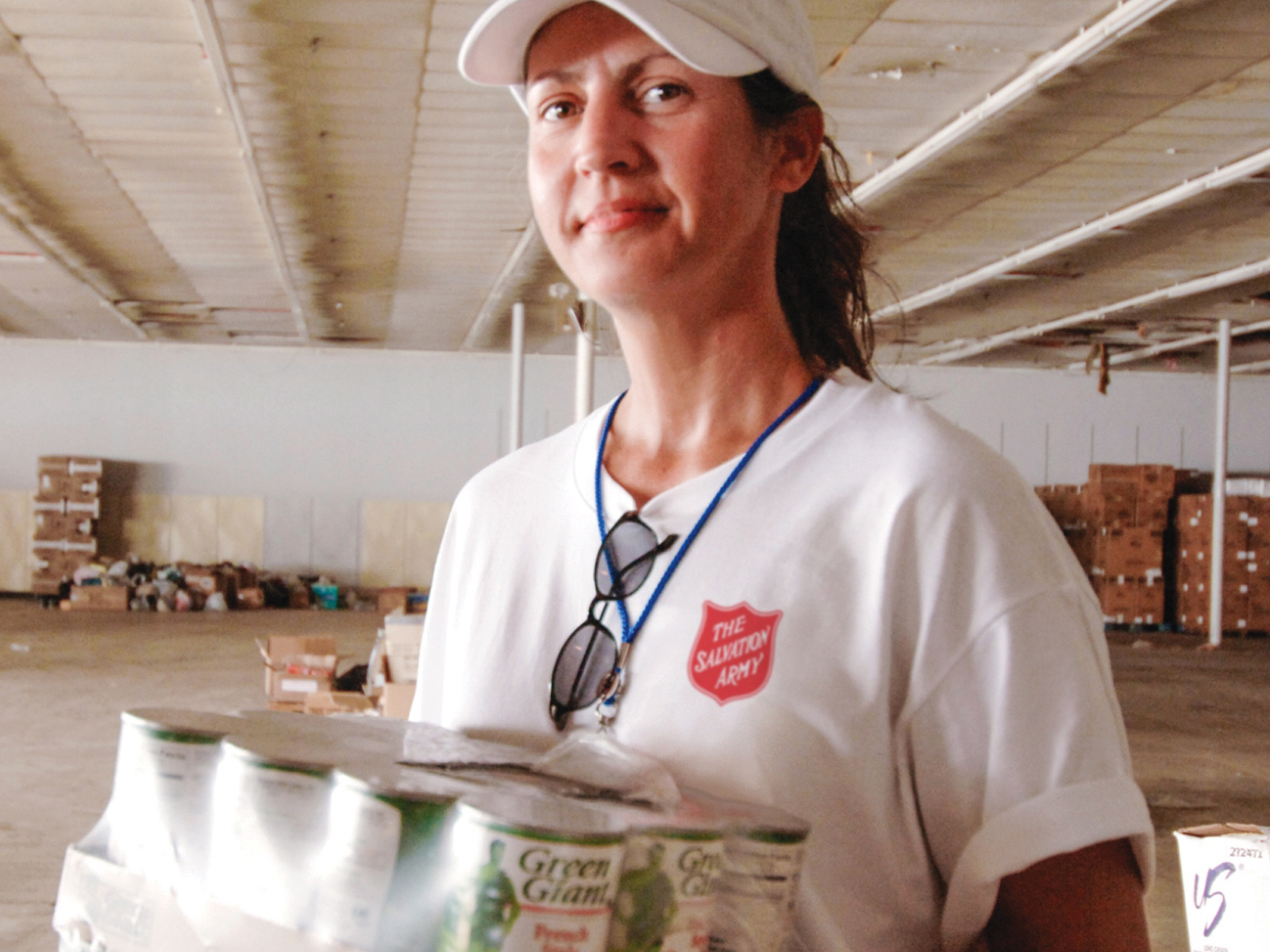New ways of thinking about caregiving
By Wendy Porch, M.Ed.
Meet Richard and Maya. They have been married for 10 years. Richard is 34 years old and works at a national bank. Maya is 35 years old and works as a human resources professional within a medium-sized technology company. They have one child and are hoping, one day, for a second. At least twice a year for the past two years, Richard has had to take time off work to look after Maya, who is living with HIV (human immunodeficiency virus). This year is worse than others and both Maya and Richard are on their fourth request for time off. Maya, in particular, is starting to worry about job security for them both. Neither of them can predict when Maya will be sick or for how long and there is no way of knowing how sick she will be. Maya and Richard are both in their prime working years and neither has any connection to the ‘caregiving community.’
This scenario is more common than you might think. Increasing numbers of Canadians are living with episodic disabilities, such as multiple sclerosis, arthritis, cancer, HIV, diabetes and some forms of mental illness.1 An episodic disability is marked by fluctuating periods and degrees of wellness and disability. In addition, these periods of wellness and disability are unpredictable. As a consequence, a person may move in and out of the labour force in an unpredictable manner and may need a family/friend caregiver’s support during episodes of sickness. To date, however, the needs of family/friend caregivers of people living with episodic disabilities have largely been absent from policy and program development for caregivers.2 As well, the traditional notion of ‘family/friend caregiver’ does not usually include someone like Richard.
The Episodic Caregiver Support Initiative (ECSI)
The Canadian Working Group on HIV and Rehabilitation (CWGHR), in partnership with the Centre for Families, Work & Well-Being at the University of Guelph, as well as the Ontario Home Care Association, the Ontario Episodic Disabilities Network and Health Gateway, has recently undertaken a closer look at the needs of family/friends who are caring for those living with episodic disabilities in order to determine how they can be better supported.
The Episodic Caregiver Support Initiative (ECSI) was funded by the Ontario Trillium Foundation and aimed to develop a model of caregiving that includes the needs of family/friend caregivers of people living with episodic disability in Ontario. The project undertook a number of research initiatives, including a needs assessment of family/friend caregivers, an environmental scan of existing programs and supports and a literature review. (The ECSI project chose the terminology ‘family/friend caregiver’ in order to represent the range of unpaid caregivers who provide assistance. For some, their caregiver networks may be composed primarily of friends who provide them with support and care.) Focus groups and key informant interviews were also conducted. The hope is that by uncovering the specific characteristics and needs of episodic caregivers, and including them in a new model of caregiving, government and policy-makers will be better positioned to design programs that meet their needs.
Episodic caregiving is different
Through its research, ECSI was able to determine some of the characteristics that make episodic caregiving unique. The main challenges for episodic caregivers seem to be related to the relatively early onset of episodic disabilities, a result of which is that episodic caregivers are often relatively young. Many episodic conditions affect women more than men (e.g., multiple sclerosis3 and arthritis4) and so men may have to take on a larger caregiving role. Young to mid-adulthood is also the time when many people choose to start families and so there is the additional stress of determining how to factor child care into managing life on a day-to-day basis. Finally, the added stress of trying to establish and maintain employment while also caring for a family member with an unpredictable health condition can be very difficult.
In the longer term, episodic caregiving responsibilities may also change the nature of personal relationships and alter established communication patterns and ways of operating together as a family/support unit. Difficulties maintaining employment, as a result of unpredictable and/or frequent absences, can lead to financial insecurity. A family’s ability to plan or save for the future, including saving for retirement or a child’s education, may be hard-hit. Parenting can be especially difficult as families struggle to come to terms with balancing child care and adjusting to living with an unpredictable illness that may require changes to established routines without any notice.
The unpredictable, sometimes vague and often invisible nature of many episodic disabilities also adds to the difficulties associated with providing care to the individual. In many cases, the person living with the episodic disability may not show any particular outward signs of being sick. Employers, friends and other family members may not even know that the person is living with an unpredictable and episodic illness, and so may be unsympathetic to reports of fatigue or other symptoms associated with the Condition.2 As episodes of illness cannot be predicted, it is very difficult to determine in advance what supports might be needed and when. The ECSI project heard from many caregivers who attested to the fact that the needs of their loved ones can, and do, change from day to day. This inability to forecast which services may be required can mean that those services cannot be accessed when they are most needed.
Episodic caregivers: A model for ideal support
To date, many of the existing policies and programs designed to address caregiver needs have not taken the needs of episodic caregivers into account. Most caregiving programs and resources identified by ECSI during the research phase of this project were intended for one of two target groups: caregivers (either an adult child or an aging partner) of the elderly, or family members caring for individuals, often children, with severe disabilities. Episodic disabilities, with their up and down illness trajectories, seem to result in individuals being viewed as ‘not disabled enough’ to qualify for supports or assistance for themselves or their caregivers. In order to raise awareness of the unique needs of episodic caregivers, the ECSI project developed the Model for Ideal Support for Caregivers of People with Episodic Disability:
About the model
This model was developed by ECSI through an iterative development process that took into account research findings and key informant interviews. It highlights the life domains most impacted by episodic caregiving: education/information; job security and flexibility; income adequacy and security; health services; emotional wellness; and social supports. The middle section of the model is a representation of the current system elements that need to be strengthened in order to better support episodic caregivers. These include:
- Interdisciplinary teams: These include health and social services as well as community members who are focused solely on the needs of the caregiver.
- Individualized assessment: A regular check-up is made of the physiological, psychosocial and mental needs of the caregiver that are assessed as distinct from those of the person with episodic disability.
- Focused solutions: These should address the diversity of needs and recognize the unique circumstances of the caregiver. This might, for example, include publicly funded programs and third-party insurance/benefit programs.
- System coordination: Episodic caregivers need services that are timely and responsive. Any assessments, services or resources that have been accessed need to be co-ordinated in order to avoid the unnecessary repetition of background information by the family/friend caregiver.
- Access to supports: Supports need to be continuous and yet recognize that caregiver participation will be episodic, fluctuating according to the caregiving needs.
Guiding these system behaviours are principles of integration, cultural sensitivity, effective communication and client-centredness. ECSI proposes that the outcomes noted above will be realized when both the system elements and the behaviours noted have shifted to be more inclusive of the unique and fluctuating needs of episodic caregivers.
The benefits of change
Family/friend caregivers have an important role to play in supporting their loved ones on their health journey. The Model for Ideal Support for Caregivers of People with Episodic Disability is a tool for raising awareness of the system shifts and conceptual changes that are needed in order for existing supports to be more inclusive of family/friend episodic caregivers. Designing supports and services that recognize the unique needs of episodic caregivers will go a long way toward ensuring that the one constant in their lives—their need for responsive supports—will be addressed when they need it.
To learn more about ECSI and to read the final project report, visit CWGHR’s website at www.hiivandrehab.ca. For more information about this project, contact Wendy Porch, Disability Specialist and Education Coordinator, at CWGHR at wporch@hivandrehab.ca or 416-513-0440 ext. 222. CWGHR would like to thank the Ontario Trillium Foundation for supporting this work.
References available upon request.
Wendy Porch, M.Ed., is the Disability and Education Specialist at the Canadian Working Group on HIV and Rehabilitation and chairs the national Episodic Disabilities Network and the Ontario Episodic Disabilities Network. She has an M.Ed. in counselling psychology from the Ontario Institute for Studies in Education at the University of Toronto.













